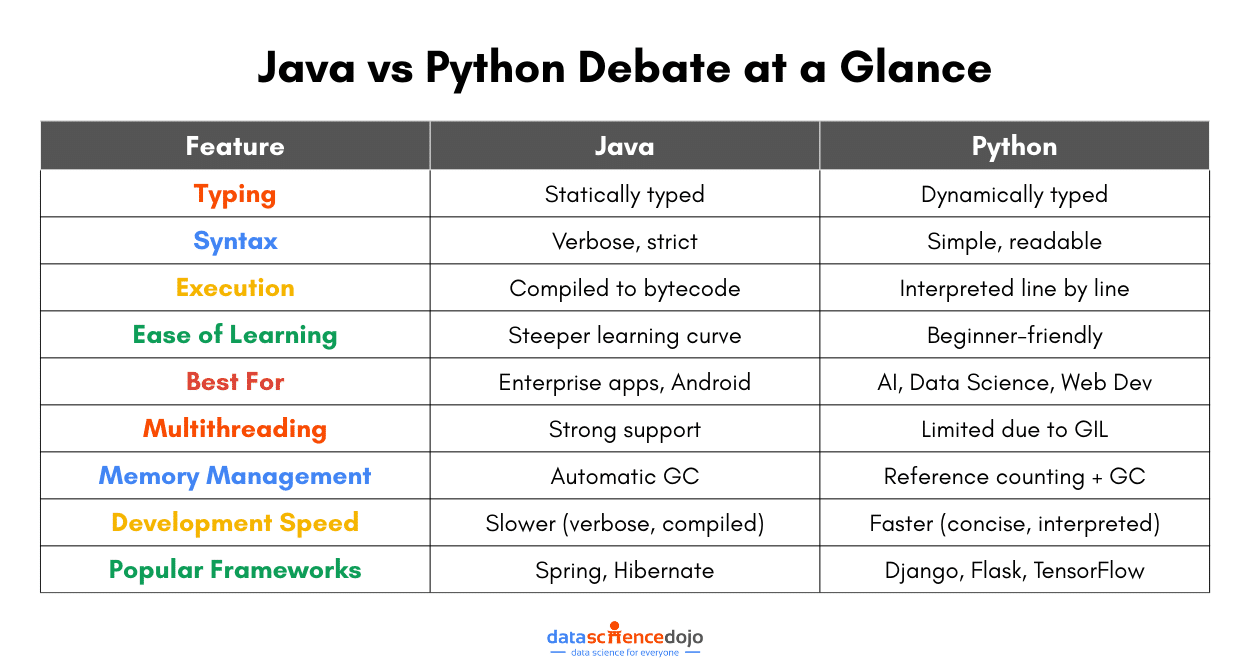Feedspot
1M
230

Image Credit: Feedspot
Java vs Python? Which Programming Language You Should Learn?
- The debate between Java and Python is similar to 'tabs vs spaces' or 'light mode vs dark mode' in the programming world.
- The choice between Java and Python depends on what you want to build, development speed, and career goals.
- Java, created in 1995, is used for enterprise applications, backend systems, and Android development with core values of reliability, portability, and security.
- Python, introduced in 1991, focuses on making programming accessible and enjoyable with a clean syntax and ease of learning.
- Java is a compiled language with the 'Write Once, Run Anywhere' feature, while Python is an interpreted language known for its simplicity and readability.
- Compiled languages like Java prioritize speed and efficiency, while interpreted languages like Python offer convenience and quick iteration.
- Java follows a two-step execution process converting code into bytecode running on the JVM, while Python executes code line by line.
- Java is faster due to JIT compilation, ideal for high-performance applications, while Python is slower but excels in AI, data science, and web development.
- Java requires static typing for variables, enhancing reliability, while Python's dynamic typing speeds up development.
- Java's memory management via JVM and Python's reliance on reference counting differ in efficiency, affecting large-scale applications.
Read Full Article
13 Likes
For uninterrupted reading, download the app